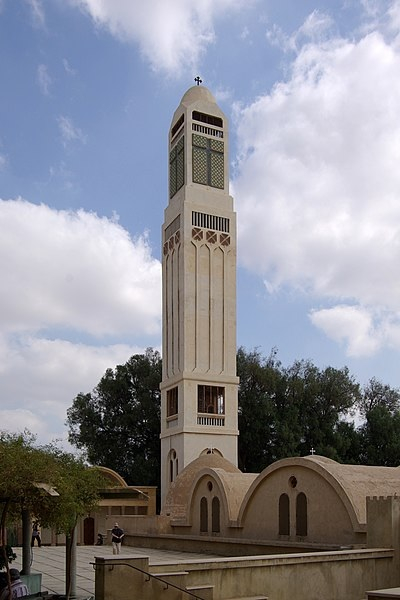
A monastery in Egypt was forced to surrender land and property they've leased from the Egyptian government after they failed to pay taxes since the COVID-19 pandemic began. Egyptian authorities arrived with bulldozers at the Saint Macarius Monastery in Wadi Al-Rayyan in Al-Fayyoum Governorate, where they demolished a fence and other structures that were erected by the monks who lived there.
According to the Christian Post, the Coptic Orthodox monastery was founded in 360 AD. In 2017, the monks were given permission by the Ministry of Environment in Egypt to use the land where the monastery stood, as well as 3,000 more acres in land, in exchange for a $32,000 annual tax fee and an additional $255,000 annually for 1,000 more areas in the land outside the fenced area. However, the monastery was not able to pay the annual fee since the COVID-19 pandemic began last year, forcing authorities to seize the centuries-old Coptic Orthodox monastery and its grounds.
Mervyn Thomas, the founder of the U.K.-based Christian Solidarity Worldwide urged Egyptian authorities to recognize that the centuries-old Coptic Orthodox monastery had been there for so many years and that the fees imposed by the government are "a relatively recent expense in its historic existence." Thomas called for compassion amidst these trying times, especially in the face of a global pandemic.
"We encourage all parties to engage in a process of negotiation to ensure a just settlement in this matter, including a reappraisal of the rent that the monastery is required to pay, which is a considerable financial burden even outside the unusual circumstances of the COVID-19 pandemic, which has negatively impacted livelihoods in Egypt and across the world," Thomas argued.
Meanwhile, Governor Oussama Al-Qadi of the Minya Governorate in the south of Cairo on the western bank of the Nile River announced a special committee to ensure the implementation of the Church Building Law. The committee has been tasked to provide updates to the governor and hold weekly meetings with the general committee of the governorate.
Governor Al-Qadi called upon Minya's civil servants to resolve the issues surrounding the speedy renovation of churches and encouraged them to communicate and liaise with local church leaders and the Christian community. About 306 churches and church buildings were legalized in the Minya Governate since the national committee established its mandate back in 2016.
Thomas applauded Governor Al-Qadi and the Minya government's initiatives, saying it "comes from a state where most sectarian tension in Egypt takes place." He highlighted the importance of continuing legislative reform and pushed to "address societal attitudes and practices that restrict the right to freedom of religion or belief."
"We commend the efforts of the government of Egypt to address historical injustices affecting the Christian community, and we encourage it to extend these reforms further to encompass other unrecognised religious and belief groups," Thomas said.
Egypt scored 75 in Open Doors USA's ranking of Christian persecution around the world and was placed in the "very high" category of persecution level. The report showed that there is a dictatorial paranoia type of persecution against Christians and a "lack of serious law enforcement and the unwillingness of local authorities to protect Christians," which leaves them vulnerable to attacks.












